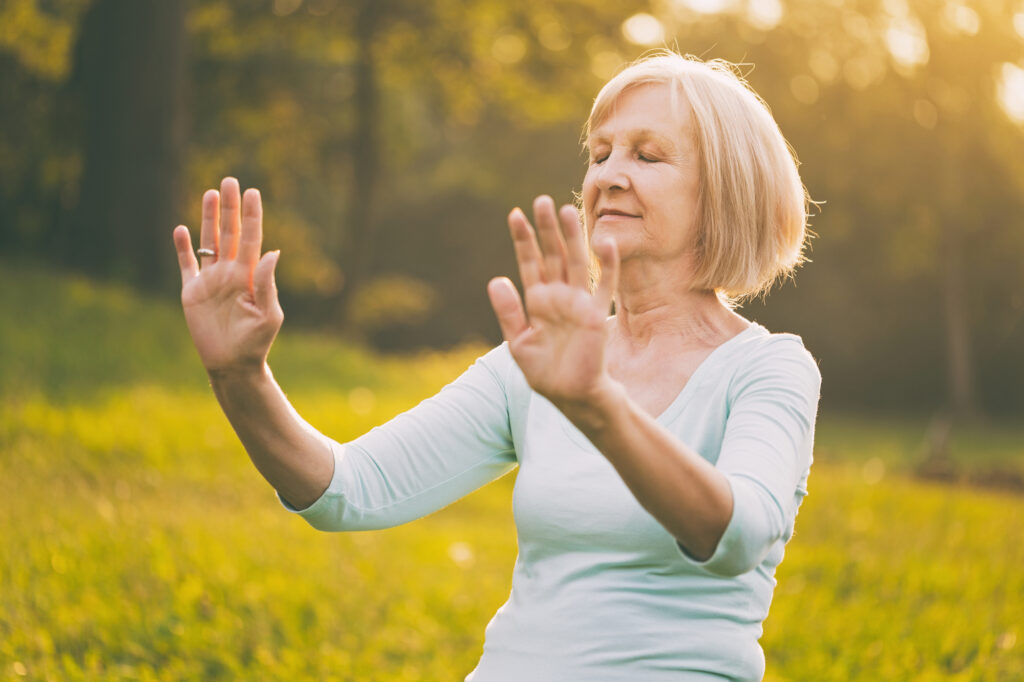Tai chi, a Chinese martial art known for its slow, steady movements, has been described as “meditation in motion.” It’s also been shown to provide a wide variety of benefits, from improving strength, balance, and flexibility to reducing pain and stiffness associated with arthritis.
Previously published research has also shown that the ancient practice can temporarily ease symptoms of Parkinson’s disease—a debilitating neurological disorder that affects some 10 million people worldwide. Now, a new study published in the October issue of the Journal of Neurology, Neurosurgery and Psychiatry shows that tai chi may have much longer and more potent benefits for Parkinson’s sufferers.
The Study
To determine whether tai chi might have more far-reaching benefits for Parkinson’s disease, a group of Chinese researchers monitored two groups of patients from January 2016 to June 2021. In addition to standard Parkin’s treatments, the first group of 147 patients participated in tai chi classes for one hour, two times per week. The other group of 187 patients received standard Parkinson’s treatment without tai chi.
The researchers assessed disease severity in all of the patients at baseline, and then again in November 2019, October 2020, and June 2021. They also tracked symptoms such as autonomic nervous symptom function, mood, sleep quality, and cognition, as well as the decrease in responsiveness to drug treatment over time. Their analysis found that the tai chi group showed a slower disease progression across the board at all measuring points, including better overall symptoms, movement, and balance.
Additionally, the number of patients in the tai chi group who needed to increase their medication dosage was significantly lower than it was in the group who received only conventional treatments: 71% in 2019 and 87.5% in 2020 compared with 83.5% and 96%, respectively.
Cognitive function deteriorated more slowly in the tai chi group, as did other non-movement symptoms, while sleep and quality of life continuously improved. Falls, dizziness, and back pain were the three side effects reported by study participants, but these were all also significantly lower in the tai chi group. In fact, among the 23 people who sustained a fracture during the study period, only six came from the tai chi group.
Conclusions
The researchers note that this was an observational study, so it doesn’t establish cause and effect. They also acknowledge that the number of study participants was relatively small, and they weren’t randomly assigned to each group.
That said, they maintain in their conclusion that “Our study has shown that tai chi retains the long-term beneficial effect on [Parkinson’s disease], indicating the potential disease-modifying effects on both motor and non-motor symptoms, especially gait, balance, autonomic symptoms and cognition…The long-term beneficial effect on [the disease] could prolong the time without disability, leading to a higher quality of life, a lower burden for caregivers, and less drug usage.”






